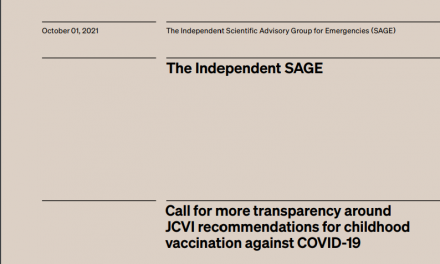A new Behavioural Advisory Group has been formed to contribute to the discussions, advice and papers of Independent Sage.
The formation of the group recognises the central role of the behavioural and social sciences in the response to Covid-19. Every measure to counter the spread of infection is dependent upon the understanding, engagement and adherence to guidance of the public, whether that be self-isolating, social distancing, practising self-protective behaviours such as hand cleansing, getting tested or (eventually) getting vaccinated.
In order to gain the adherence of the public to pandemic control measures, it is critical that the authorities are trusted. For this to happen, both central and local authorities must involve all sections of the public as partners in all stages of the development, delivery and assessment of policies.
Equally, it is crucial to consider the impact of every policy and practice on practices on all sections of the public, especially those who are most vulnerable, with a view to reducing inequalities. Diversity is central to the thinking, procedures and membership of our new group.
Our focus, however, is not limited to the behaviour of the public. We will also address that of policy-makers, planners, and health and social care workers. They are all part of a complex system of people and organisations needed to address the problem. Getting the right policies involves understanding the capability, opportunity and motivations of people in all parts of society.
The Independent SAGE Behavioural Advisory Group includes leading authorities in anthropology, behavioural sciences, criminology, health studies and psychology. Some of the members also participate in UK-wide and Scottish government advisory groups. Its role is complementary, not an alternative, to these other roles. It will support Independent SAGE in looking in depth at key policy issues, including ones not currently on the government’s agenda.
The Behavioural Advisory Group aims to help in the development of constructive proposals and policies that will help the UK Government lead the country out of the worst public health crisis of our lifetime.
Appendix 1: Members of the Behavioural Advisory Group
Imran Awan is Professor of Criminology at Birmingham City University and a leading expert on Islamophobia and countering extremism. He is a participant in the UK government’s SPI-B group.
Val Curtis is Professor of Hygiene and Director of the Environmental Health Group at the London School of Hygiene and Tropical Medicine. She is an evolutionary anthropologist specialising in hygiene behaviour globally. She is a participant in SPI-B.
John Drury is Professor of Psychology at the University of Sussex specialising in research on collective behaviour including behaviour in emergencies. He is a participant in SPI-B.
Susan Michie is Professor of Health Psychology and Director of the Centre for Behaviour Change, University College London. Her research focuses on behaviour change in relation to health and the environment. She is a participant in SPI-B and advises the World Health Organization on behavioural science in relation to Covid-19.
Ann Phoenix is Professor of Psychosocial Studies at the Thomas Coram Research Unit, UCL Institute of Education. Her research focusses on racialised and gendered identities, family lives and home, migration and transnational families.
Stephen Reicher is Professor of Psychology at the University of St. Andrews. His work addresses group processes, with special emphasis on processes of leadership, influence and collective action. He is a participant in SPI-B and in the Advisory Group to the Scottish Chief Medical Officer on Covid-19.
Elizabeth Stokoe is Professor of Social Interaction at Loughborough University. She is an expert in conversation analysis. She is a consultant for SPI-B.
Robert West is Emeritus Professor of Health Psychology at University College London and Editor-in-Chief of the journal Addiction. He specialises in addiction and behaviour change. He acts as advisor to Public Health England on tobacco control and behaviour change. He is a participant in SPI-B.


